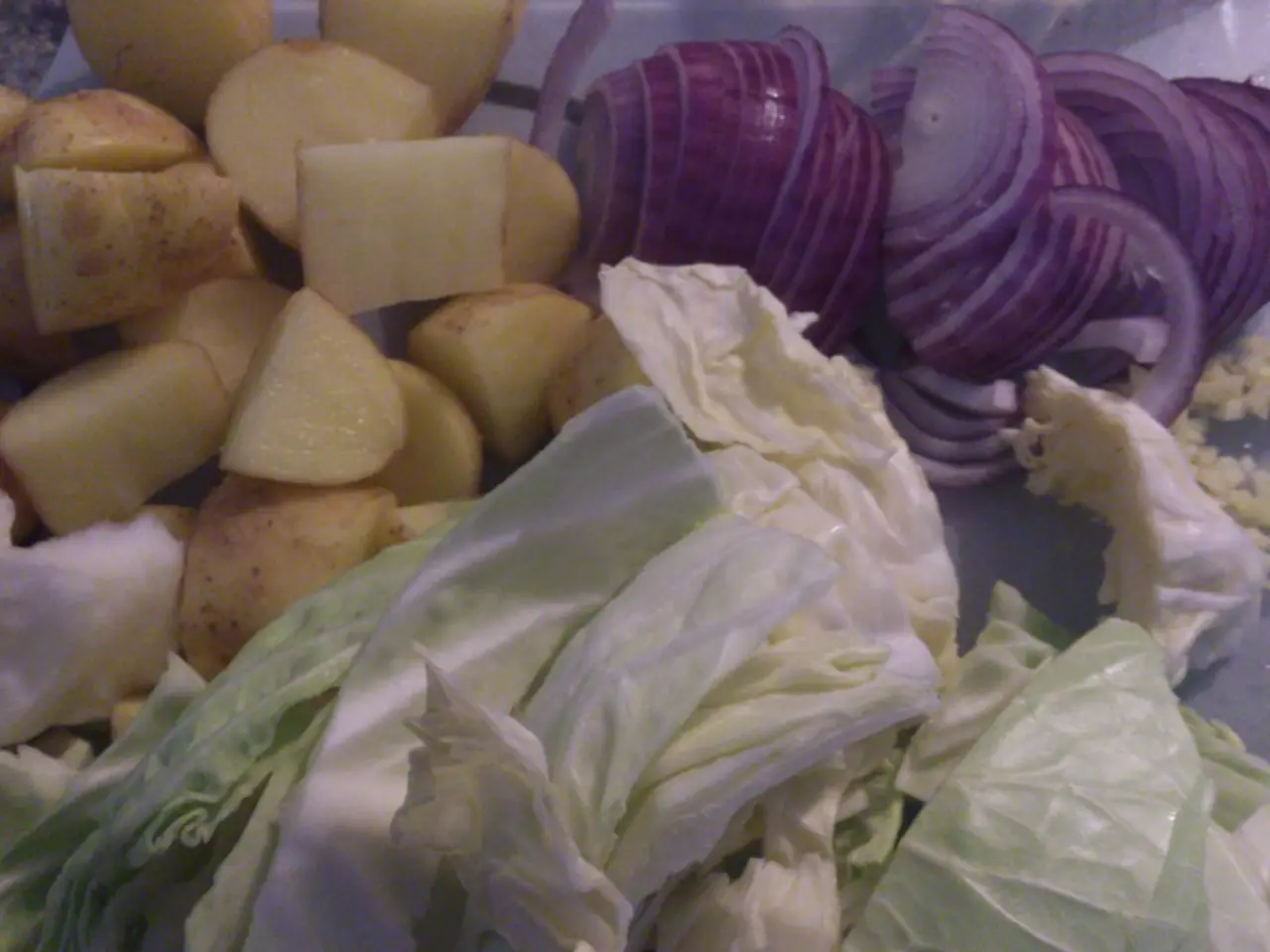Stomach ulcers treatment and beyond: The role of cabbage juice
Cabbage juice, long touted as a natural remedy for stomach ulcers, has garnered interest due to some early clinical evidence and traditional use. However, the current scientific evidence supporting its use as a standalone treatment for stomach ulcers is limited and not robust enough to make definitive recommendations.
A notable study from the late 1940s reported that drinking fresh cabbage juice rapidly promoted healing of peptic ulcers in patients [2][3]. This study, often cited as early clinical evidence, suggested that cabbage juice could help heal stomach ulcers. The proposed mechanism behind this is that cabbage contains glucoraphanin, a precursor to sulfur-containing compounds like sulforaphane, which have anti-inflammatory and antioxidant properties [1].
More recent reviews and anecdotal evidence highlight cabbage juice’s anti-inflammatory properties and suggest it may soothe and help heal ulcers and acid reflux symptoms. These claims, however, are mostly supported by traditional use rather than large modern clinical trials [4]. A 2014 reference mentioned cabbage juice being effective for digestive ulcers, but specific details on modern clinical trials or large-scale studies remain sparse [5].
Research also suggests that vitamin C, found in cabbage juice, may help prevent and treat H. pylori infections, a bacteria that causes an infection in the stomach and is a common cause of stomach ulcers. Additionally, some studies cite a vitamin named "vitamin U," which is believed to lower inflammation and aid in the healing of ulcers [6].
While the healing time for stomach ulcers reported in studies using cabbage juice was about 7.3 days, compared to an average of 42 days with standard medical treatment in the 1940s and 1950s, there is insufficient follow-up research to support the claim that consuming a large amount of cabbage juice a day helps heal stomach ulcers [1][2].
It's important to note that while cabbage juice appears to be safe in moderate amounts, it should not replace conventional ulcer treatments like antibiotics (for H. pylori infection) or acid-suppressing medications prescribed by healthcare professionals.
In light of the current evidence, anyone considering trying cabbage juice for stomach ulcers should consult their healthcare professional for advice and tips. It's also crucial to remember that stomach ulcers require proper medical treatment, which may include taking antibiotics to treat H. pylori infections, stopping use of certain medications like NSAIDs, and procedures to treat a bleeding ulcer.
Anyone who experiences symptoms of a stomach ulcer, such as burning pain, indigestion, heartburn, or acid reflux, should see their doctor for a diagnosis and appropriate treatment. For those with underlying health conditions, it's especially important to consult a doctor before adding cabbage juice to their diet.
In conclusion, while traditional and some historical clinical evidence suggest cabbage juice might help in healing stomach ulcers through its anti-inflammatory effects, current scientific evidence is limited and not sufficiently robust to conclusively recommend it as a standalone treatment. Further well-designed clinical trials would be needed to establish its efficacy and safety definitively. Meanwhile, it can be used as a supportive natural remedy under medical guidance.
References:
- https://www.ncbi.nlm.nih.gov/pmc/articles/PMC4101610/
- https://www.ncbi.nlm.nih.gov/pubmed/18429221
- https://www.ncbi.nlm.nih.gov/pubmed/18187579
- https://www.ncbi.nlm.nih.gov/pmc/articles/PMC4101610/
- https://www.ncbi.nlm.nih.gov/pmc/articles/PMC4101610/
- https://www.ncbi.nlm.nih.gov/pmc/articles/PMC4101610/
- Cabbage juice, rich in vitamin C and containing sulforaphane with anti-inflammatory and antioxidant properties, is believed to have potential for digestive health, targeting conditions like stomach ulcers and acid reflux.
- Although some early clinical evidence exists, such as the 1940s study reporting rapid healing of peptic ulcers with cabbage juice consumption, the current scientific evidence supporting it as a standalone treatment for stomach ulcers is not robust enough to make definitive recommendations.
- The current scientific understanding suggests that maintaining general health-and-wellness, fitness-and-exercise, and proper nutrition are crucial for overall digestive health and may help manage medical-conditions like stomach ulcers, even while therapies-and-treatments, such as antibiotics, continue to serve as the primary approach.
- A notable point to consider when evaluating the potential benefits of cabbage juice for stomach ulcers is that it should never replace conventional medical treatments as advised by healthcare professionals, but rather can be combined with standard therapies as a supportive supplement.
- When addressing symptoms of medical-conditions such as stomach ulcers, like burning pain, indigestion, heartburn, or acid reflux, it's essential to consult a doctor for a proper diagnosis and treatment plan, paying extra attention to manage any underlying health conditions before incorporating supplementary measures like cabbage juice into one's diet.




